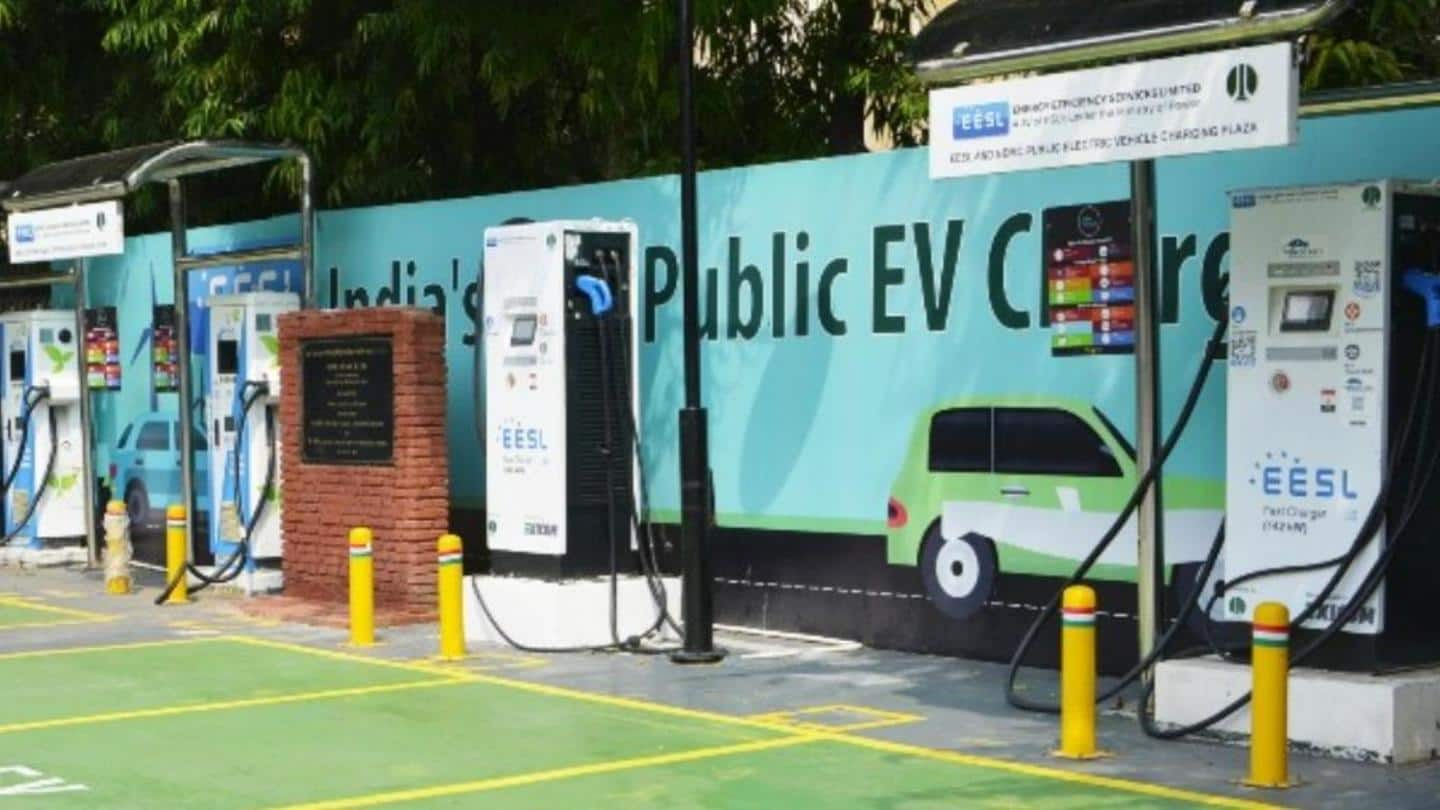
Finding EV chargers, battery-swapping stations in Delhi is easy now
What's the story
The Delhi government has launched an open database that will make life a lot easier for EV makers and users alike.
The database provides details about all EV charging and battery-swapping stations on the government's Switch Delhi portal.
The publicly-owned database is put in place in accordance with the mandate of the Delhi Electric Vehicles (EV) Policy of 2020.
Context
Why does this story matter?
India is in the middle of an EV revolution and it seems that Delhi is leading that. When it comes to EVs, one of the most worrying aspects is the range of the vehicle.
Most get anxious about finding a charging point or battery-swapping station. Delhi government's open database will solve this.
The database is similar to the successful bus transit database of 2021.
Clarity
The database is open to registered entities and individuals
The Delhi government's database will allow open access to over 2,500 charging points in Delhi. The database is open to both registered entities and individuals.
They will be able to submit and retrieve historical and real-time information about charging and swapping infrastructure via the ev.delhi.gov.in/openev portal.
The database can be used for free by navigation systems, and apps.
Convenience
Charging service providers can access data in dynamic, static formats
EV players can access the database to further develop it by providing information about charging and battery-swapping stations.
Charging service providers can register to access data related to all charging and swapping stations in dynamic and static formats by submitting a request.
For accessing dynamic data, an application programming interface (API) key will be shared instantly. Decisions on requests won't take over 48 hours.
Policy
The database is established in accordance with Delhi EV Policy
The open database portal has been introduced to fulfill the mandate of the Delhi EV Policy.
Clause 6.4.2 of the policy states that "an open, publicly-owned database shall be developed by the Transport Department, GNCTD offering historical and real-time information on public charging infrastructure."
All entities operating public or semi-public EV charging/swapping stations must submit data to the open database within three weeks.
Official words
'Open database will solve people's range anxiety'
About the open database, Transport Minister Kailash Gahlot said, "With the launch of the open database, Delhi is making a move toward solving the biggest problem of electric vehicle users, which is range anxiety."
"It will enable them to use their favorite apps to locate more than 2,500 charging/battery-swapping stations across Delhi and the number is expected to reach 18,000 by 2025," he added.